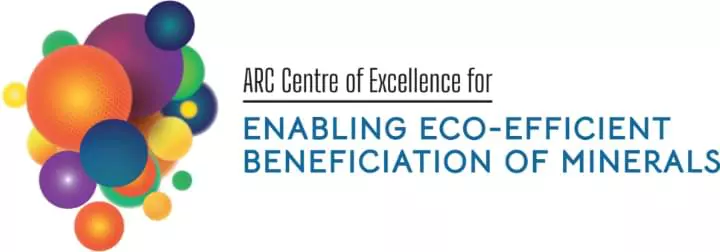Date: 29th June 2023
Ministerial Visit - Federal Minister for Industry and Science, The Hon Ed Husic MP visits COEMinerals
New Centre techniques and technologies were demonstrated to Australia’s Federal Minister for Industry and Science, The Hon Ed Husic MP, and Federal Member for Newcastle, Deputy Speaker of the Australian House of Representatives, Sharon Claydon, who visited our labs this week.
They were accompanied by The University of Newcastle’s Vice Chancellor Prof. Alex Zelinsky and Pro-Vice Chancellor Prof. Craig Simmons; Newcastle Institute for Energy and Resources Director, Prof Alan Broadfoot and #COEMinerals Chief Investigator Assoc. Prof. Elham Doroodchi and Operations Officer Annemarie Fawkner, who also engaged with Centre researchers during the visit.
Australia is at the global forefront of minerals processing / scientific innovation thanks to new research and novel inventions by the ARC Centre of Excellence for Enabling Eco-Efficient Beneficiation of Minerals (COEMinerals). The Centre works closely with scientists, industry and sustainability experts from around Australia and the world to improve the ‘beneficiation’ stage of minerals processing. Learn more about us at www.coeminerals.org.au
Why is this research and innovation important?
The beneficiation (minerals separation) stage is generally a highly energy consuming and wasteful part of the mining process. New separation techniques reduce water and energy use, and enable higher concentrations of minerals to be recovered. This helps prevent minerals/metal particles that can be smaller in diametre than human hair from becoming ‘waste’ (and stored in tailing dams, which we’re striving to eliminate the need for).
Recovering increased amounts of minerals, more sustainably at this early stage of processing is important from efficiency, economic and environmental perspectives. Some minerals are becoming harder to recover, many are in high demand to support energy, medical and technology development, and some are deemed ‘critical’ to Australia’s future.
Read more about the visit below, as sourced to :
5th July 2023
Media — Industry and Science Minister visits COEMinerals
Minister for Industry and Science visits NIER to see world-class research and industry collaboration
Recently NIER had the pleasure of welcoming the Hon. Ed Husic, Minister for Industry and Science and Sharon Claydon, Federal Member for Newcastle and Deputy Speaker of the Australian House of Representatives on-site.
The visit follows the Australian Government’s announcement late last year of a $15 billion National Reconstruction Fund to diversify and transform Australia’s industry and economy.
They met with representatives from the ARC Centre for Enabling Eco-Efficient Beneficiation of Minerals (COE Minerals) and the Centre for Organic Electronics (COE) to learn more about their research innovations.
COEMinerals Chief Investigator, Associate Professor Elham Doroodchi and Chief Operations Officer, Annemarie Fawkner, along with staff and students demonstrated how world-class beneficiation (minerals separation) technologies reduce water and energy use while improving efficiencies in the minerals sector.
PhD student Joshua Starrett showed the group the Reflux Classifier (RFC™), which was developed by Laureate Professor Kevin Galvin and his team. Joshua’s research focuses on how the RFC™ addresses multiple minerals separation problems, such as the separation of different particle sizes and mineral recovery.
PhD student Meolla Yvon demonstrated how the Centre’s novel agglomeration technology, also developed by Prof Galvin, can selectively recover fine particles from minerals, particularly nickel and rare earth minerals, commonly lost to tailings from mineral extraction processes. The technology recovers particles 100 times faster than conventional methods. Meolla’s research aims to progress the technology further to the point industry can adopt it.
Many minerals are necessary to support energy, medical and technology development, making COE Minerals’ research vital to industries worldwide.
Professor Paul Dastoor, Director of the COE, and Anthony Letmon, Co-Founder and Chief Executive Officer of Kardinia Energy, the University’s co-located industry partner, discussed their printed solar cell technology. Printed solar is an ultra light-weight, ultra-flexible, recyclable and low-cost alternative to traditional solar panels.
The University of Newcastle and Kardinia Energy will transition from commercial-scale trials to full-scale manufacturing of printed solar through the Trailblazer for Recycling and Clean Energy (TRaCE) program.
TRaCE is a $280 million initiative between the University of Newcastle and the University of New South Wales, supported by the Commonwealth Government and industry partners that will move clean energy and recycling technologies from the research phase to global markets.
As part of TRaCE, Kardinia and the University will establish a manufacturing facility for the technology. It is expected the facility will create about 400 direct and indirect jobs.
The Hunter region is the largest regional economy in Australia and has an increasing focus on innovations that will make industries more efficient.
NIER creates a vital link between industry and academia in the Hunter region to translate research into market-ready solutions, contributing to its potential to transform Australia’s economy. We look forward to what will come of the Australian Government’s continued recognition of the importance of this link in moving Australia into a more sustainable future.
–
Aerticle can be accessed here:
Minister for Industry and Science visits NIER to see world-class research and industry collaboration (sharepoint.com)

